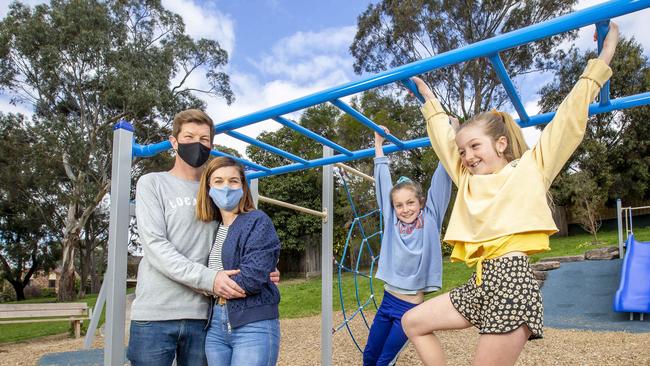Why working class Aussies and families are both winners and losers in Federal Budget 2020
In a move that would make Jimmy Barnes proud, working men and women will have more money in their pockets thanks to Australia’s latest budget. But its intricacies still leave million high and dry, writes Susie O’Brien.

Opinion
Don't miss out on the headlines from Opinion. Followed categories will be added to My News.
Jimmy Barnes would be proud.
Working men and women will have more money in their pockets thanks to this budget.
That’s great when you’ve got bills to pay and mouths to feed.
Giving seven million Australians more than $2000 in tax relief will make a real difference.
But tax cuts are not much good if you don’t have a job.
This budget leaves the unemployed singing for their supper from next year.
From January 1, the base rate of Jobseeker, Youth Allowance and Parenting Payment will drop back to $565 a fortnight with the end of the $250 coronavirus supplement for 2.2 million Aussies. It’s woefully inadequate.
JobKeeper saved 700,000 jobs, but what’s going to happen when it finishes next March? Many of the newly unemployed will not be able to live on less than $300 a week.
Unless job seekers are aged under 30 or seeking an apprenticeship, there’s not much in this budget for them.
Disappointingly, the tax cuts are also skewed towards higher income earners, making it less likely the recipients will splash the cash they’re given.
Those on $37,000 only get $510 in tax relief but those earning up to $126,000 will get up to $2,745.
This budget also has nothing to make childcare cheaper which would boost the employment levels of women and help family budgets.

Current subsidies make it just about pointless for women to work a fourth or fifth day a week because of the money they lose to childcare fees.
There’s also no change to the paid parental scheme that would allow fathers or secondary carers to spend more paid time at home with their new baby.
Additional funds for childcare and parental leave in the budget are short term and designed solely to help parents get through the next few months of the pandemic.
There’s been much talk about the pandemic causing a “pink recession” that has impacted women disproportionately.
And yet this is largely ignored in the budget.
There’s money for manufacturing and infrastructure projects, but nothing to boost employment in low-paid women-dominated industries such as education, childcare and health.
An additional $10,000 in superannuation redraw funds is also welcome, but is likely to leave yet more older women in poverty.
Young families will also benefit from the home builder grant of $25,000 but there’s no major new spending in social housing, which would help the most disadvantaged families.
However, there are some positive moves which should be acknowledged.
The $240 million economic package for women will help female leaders, address sexual harassment, boost female entrepreneurs, and increase the number of STEM cadetships.
Payments for aged pensioners and card holders of $250 in December and next March are welcome, as are 23,000 more care packages to keep the elderly in their own homes.
There’s also more money for family law court matters and mental health, including a boost in the number Medicare subsidised psychological counselling sessions.
It’s a good start, but the budget is unlikely to be a hit with all families
Susie O’Brien is a Herald Sun columnist
